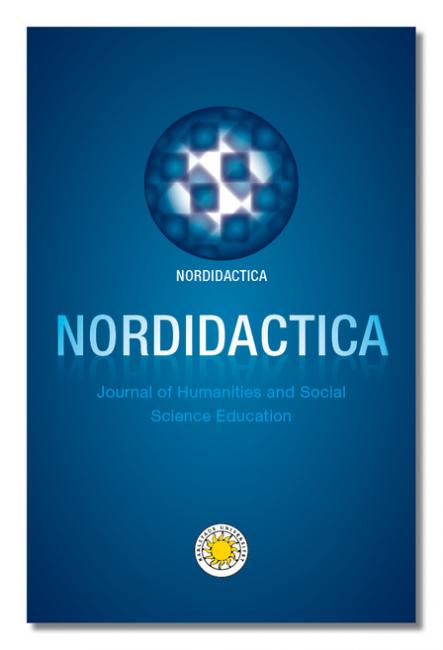Nordidactica 2016:1
During the conferences NOFA 5 in Helsinki and NGM (Nordic Geographers Meeting) in Tallin (May and June 2015 respectively), we invited participants to make contributions in a special issue on geography education in the journal Nordidactica, on the foundation of their conference abstracts and presentations.
The conference sessions on geography and education had a broad thematic spectrum, including practical as well as theoretical aspects of teaching, studying, and learning geography in schools and at institutes of higher education. With this special issue we want to continue the discussion on the themes of geography and education in the Nordic context. But the aim is also to broaden the exchanges with ongoing research on geography education in Europe, and in the rest of the world. The issue will highlight the challenges of geography education in line with the conference themes “Changing Subjects, Changing Pedagogies: Diversities in School and Education” and “Geographical Imagination: Interpretations of Nature, Art, and Politics”.

The following number of Nordidactica contains a selection of the presentations given at the above-mentioned Nordic conferences in 2015, developed and extended into full papers.
Søren Witzel Clausen examines in a small-scale survey what characterizes Danish geography teachers’ topic-specific professional knowledge when reporting on instructional strategies and practices concerning weather formation and climate change. The teachers underlined the categories knowledge and human interaction with nature as the most important learning goals and content areas. In terms of organizing lessons, classroom discussions and student teamwork were emphasized. A central part when teaching climate change was the teachers’ reflections on how students can learn given facts and at the same time learn to become informed citizens. Witzel Clausen discusses this “dual perspective” in the context of the changed macro system of education during the last fifteen years.
Then follows two articles based on research in German geography didactics. Peter Bagoly-Simó and Anke Uhlenwinkel highlight the relationship between the social and natural science components of the geography subject. In countries where school geography primarily is regarded as a social science, physical geography is normally included as an important part of the geography teaching. The scientists investigated how physical geography themes are being legitimated in selected German geography didactics journals, and whether any change in argumentation can be discerned between the years 1979 and 2013. They compared the German argumentation with the analogous argumentation in a British debate on physical geography teaching in England. Different modes of legitimation concerning articles on volcanoes and weather were furthermore compared. The authors highlight a shift in argumentation from content-based to skill-based, which may be an attempt to simplify a complex and diverse geography subject. They furthermore call for an epistemological discussion on how to integrate physical geography into school geography, which is mainly social science-oriented.
Yvonne Behnke investigates how geography students’ learning may be affected by textbook design. By eye tracking she monitored students’ eye movements while they studied geography textbook spreads. Different kinds of textbook spreads on the identical geographical topic were compared. The results revealed that visuals were often studied rather superficially, while there was a notable focus on text. She discusses learning related challenges related to textbook design.
Per Jarle Sætre puts focus on the thematic issues and how the incentive for education for sustainable development has affected Norwegian geography curricula. He discusses the relationship between environmental education and education for sustainable development, and investigated by text analysis whether the incentive shows in the geography curricula. It appears that there has been little change in the geography curricula after the introduction of the concept ESD. Core goals in the general national core curriculum indicate a shift to ESD. Nonetheless, no follow-up in terms of developing the geography curricula has been conducted in Norway.

